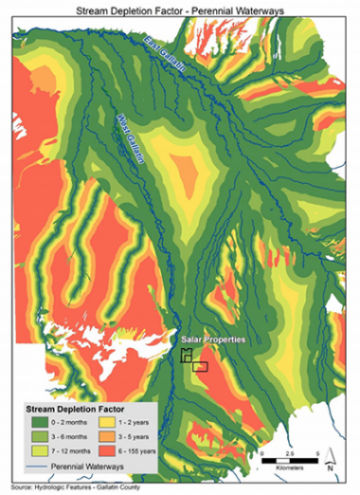In the Western United States, water rights are rigidly allocated by seniority, but over-allocation of water for agricultural, municipal, and industrial use severely depletes stream flows, degrades ecosystems, and poses economic risk to those dependent on a reliable water supply. This team investigated whether a novel approach to contractual water agreements could overturn competition between users, advance a multiple-benefit approach that restores stream flows, reduce the economic risk associated with water shortages, and maintain agricultural economies.
OUR APPROACH: This multidisciplinary team developed a suite of standardized indicators for measuring the benefits and impacts of water transaction programs.
Team Status:
Measuring the Benefits of Water Transaction Programs
The quantitative indicators developed by the team to evaluate water transaction programs include:
The indicators will help water managers understand and quantify potential tradeoffs and synergies among alternative water transaction strategies and programs for different water sectors. They can also provide an understanding of how water sharing agreements affect overall basin resilience to drought.
This interactive tool calculates indicator values and graphically displays how they change over time as a result of water transactions. Users may input data directly, or prompt the programs to access publicly available data such as USGS streamflow and USDA land use databases. This application allows users to enter and store data and track the progress of their water transaction programs as they work towards environmental, economic, and water security goals.


“Instead of competing over scarce water, previously competing sectors could pool financial resources to conduct fewer transactions to achieve greater overall benefits: restoration of rivers, streams and groundwater-dependent systems; assured water supplies for cities; and sustainable rural economies.”
– Eloise Kendy, Team Lead
Leaders
Eloise Kendy
Members
Season Martin
Leslie Sanchez
Lain Leoniak
Clay Landry
Ron Nelson
Emily Powell
Brian Richter
Leon Szeptycki
Laura Ziemer
Andrew Purkey
Advisors